Preparing for a swim meet requires not only dedicated training, but also proper nutrition to ensure optimal performance. Knowing what to eat the night before a big event can make a significant difference in how you perform in the pool.
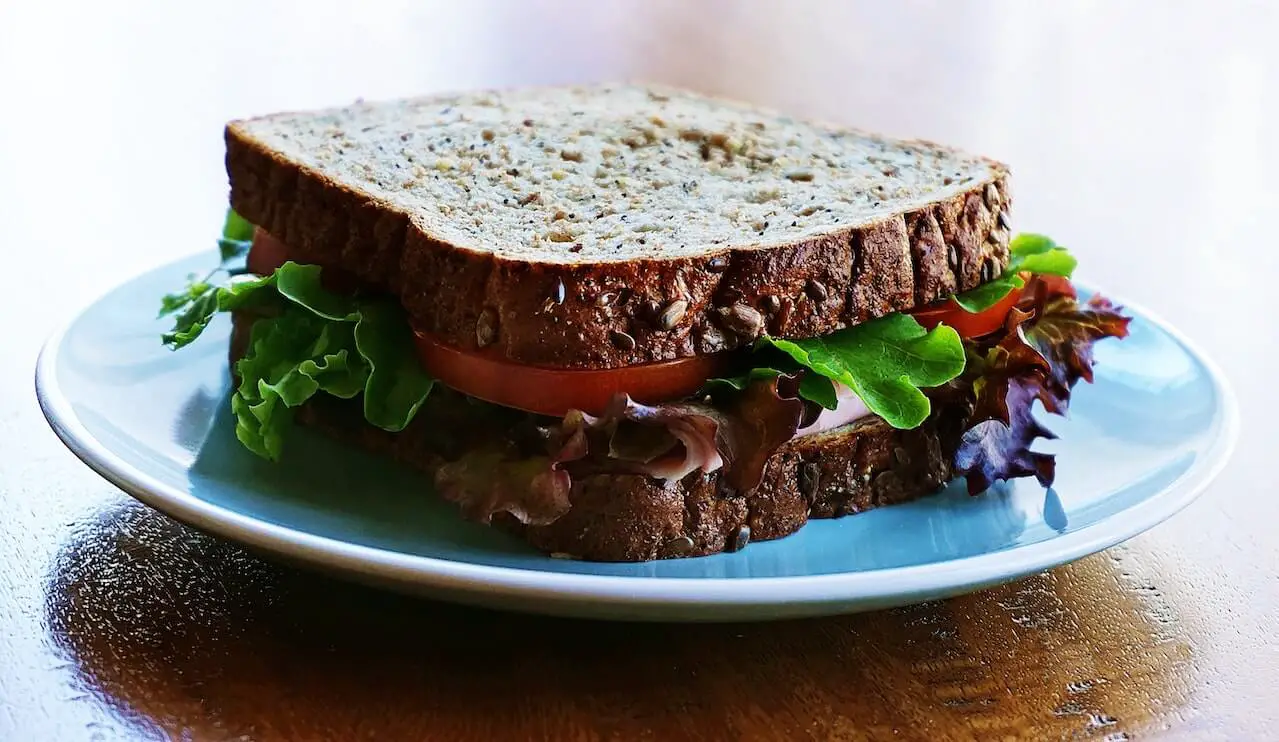
In this article, we’ll discuss the best foods to eat the night before a swim meet and why they matter for your success.
Importance of Pre-Swim Meet Nutrition
Energy and Performance
The night before a swim meet is a crucial time for fueling your body to ensure optimal energy and performance. Focus on consuming complex carbohydrates, such as whole grains, peas, beans, and vegetables, which should make up around 50-60% of your diet.
These carbs provide long-lasting energy to power you through your races and help you maintain peak performance throughout the meet.
Focus and Mental Clarity
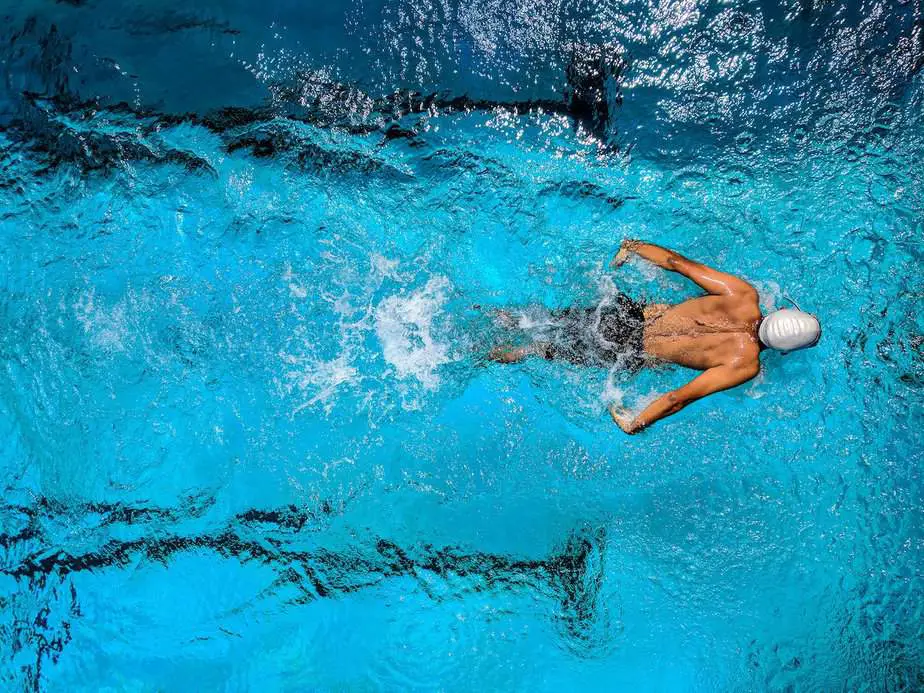
Proper nutrition goes beyond just physical benefits; it also impacts focus and mental clarity during a swim meet. Eating well-balanced meals, including quality protein sources and healthy fats, will aid in supporting brain function.
Foods like lean meats, fish, nuts, and avocados are great for boosting cognitive abilities and keeping you sharp in the pool. So, make sure to incorporate these into your dinner the night before your big swim meet.
Proper Hydration
Hydration is just as important as nutrition when it comes to preparing for a swim meet. Even though you are surrounded by water, you still lose fluids through sweat and exertion while swimming.
Begin the hydration process the night before by drinking plenty of water and continue to hydrate throughout the day of the meet.
Electrolyte drinks are also beneficial in replenishing lost minerals and maintaining proper fluid balance in your body. Staying hydrated enables you to perform at your best by preventing muscle cramps, fatigue, and dizziness.
Muscle Recovery
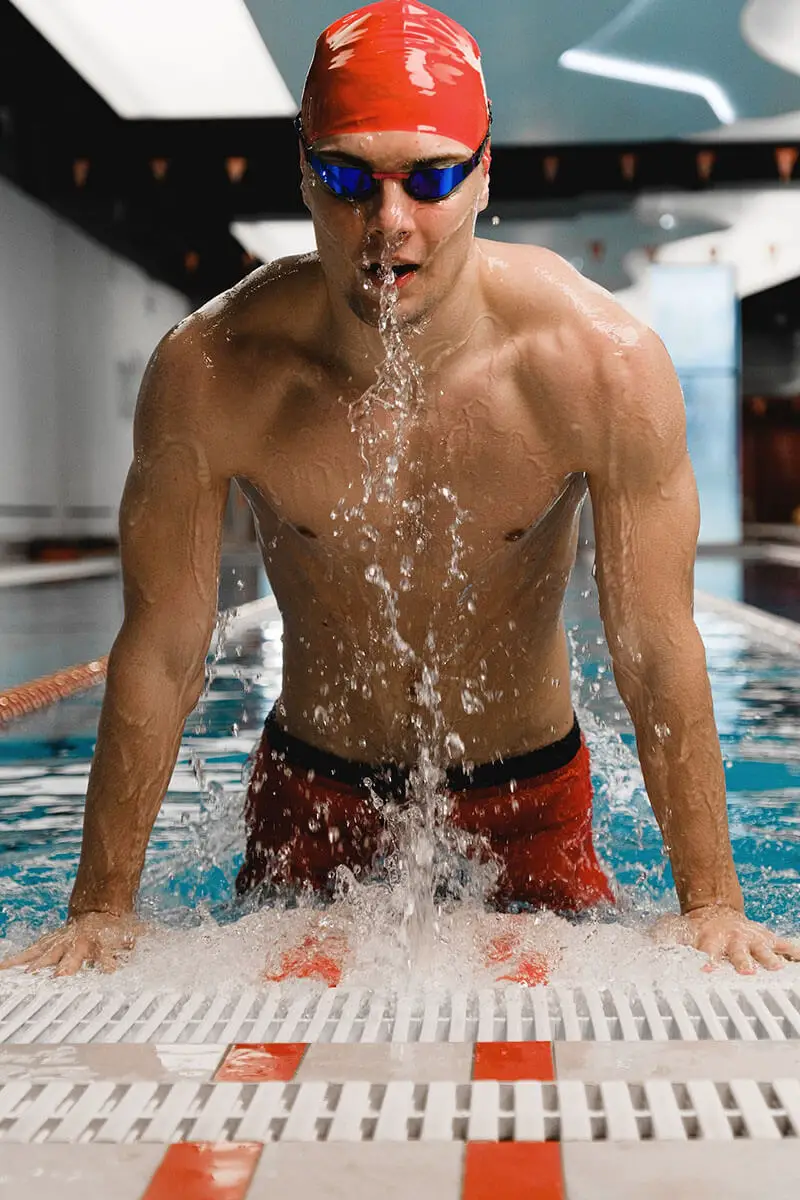
Lastly, preparing your body for muscle recovery is essential, especially if the swim meet runs over multiple days. Consuming protein-rich foods like lean meats, poultry, fish, and dairy products the night before helps your body repair and rebuild damaged muscle tissue.
Additionally, including antioxidant-rich fruits and vegetables in your meals can reduce inflammation and speed up recovery time.
Ideal Foods for the Night Before a Swim Meet
Complex Carbohydrates
Incorporating complex carbohydrates into your dinner the night before a swim meet is important to ensure you have the energy to perform well. These carbs are slowly digested, providing a steady supply of fuel for your muscles during the competition. Great options include:
- Whole grains like brown rice, quinoa, or whole wheat pasta
- Potatoes, both sweet and regular
- Oats
- Legumes, like beans or lentils
Make sure to pair your complex carbs with plenty of vegetables to add extra nutrients and fiber. They also help with digestion and keep you feeling satisfied without overeating.
Lean Protein Sources
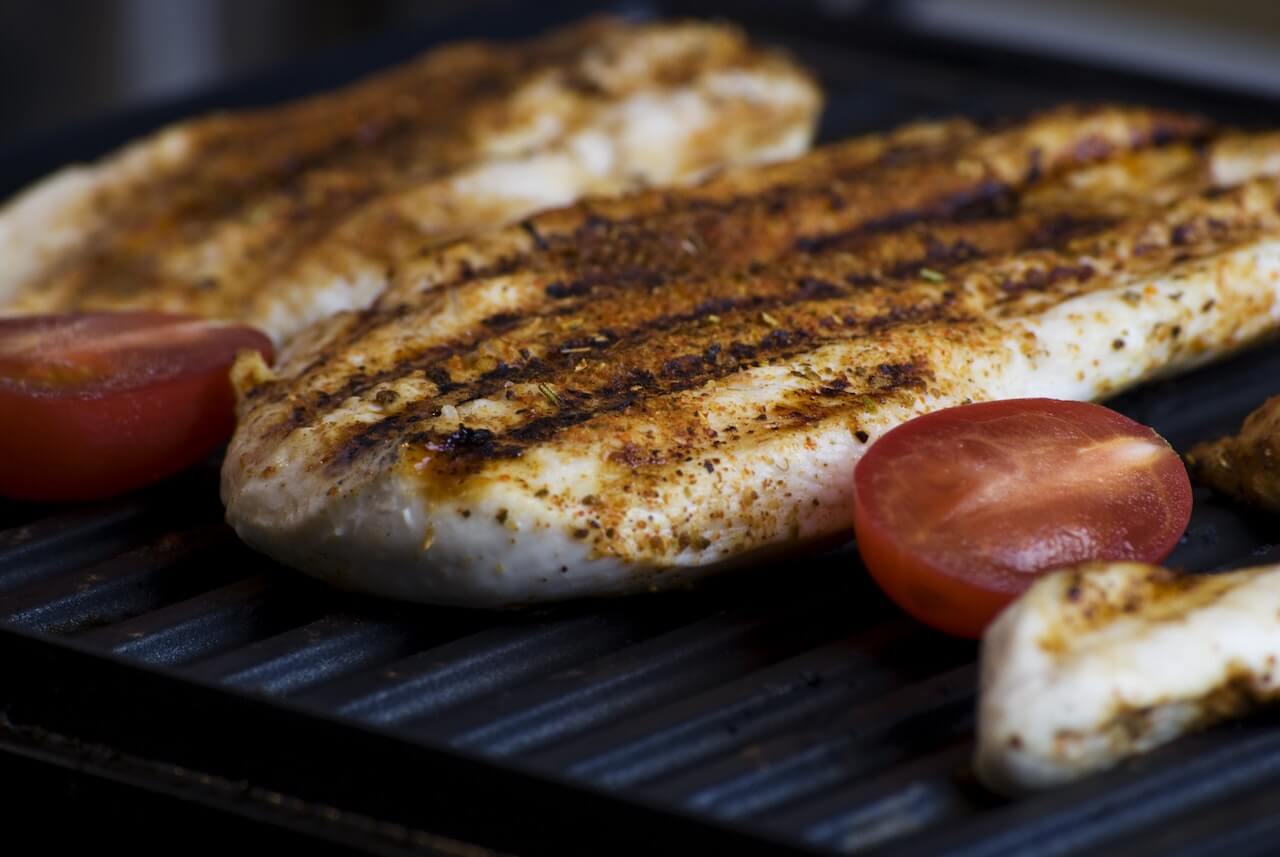
Lean protein sources are essential for muscle repair and growth. They will help you recover faster from your training and prepare you for the event. Some great lean protein choices the night before a swim meet are:
- Chicken breast
- Turkey
- Fish or shrimp
- Eggs and egg whites
- Tofu
- Protein shake
Incorporate at least 3-4 ounces of lean protein into your meal, aiming for a variety of sources to ensure you get all the essential amino acids necessary for optimal performance.
Healthy Fats
Lastly, don’t forget about healthy fats. These fats help with energy production, muscle recovery, and inflammation reduction – all crucial factors for top athletic performance. Include a moderate portion of healthy fats in your pre-meet meal with choices such as:
- Avocado
- Nuts and seeds
- Olive oil or coconut oil —for cooking or as salad dressings
Hydration Strategies
Water Intake
Staying properly hydrated is crucial for your performance during a swim meet. As a swimmer, you should aim to drink 16-20 ounces of water about 2-3 hours before your event.
Keep a water bottle with you and continue to sip throughout the day. This ensures that your body has enough fluids to avoid dehydration and muscle cramps during the competition.
Sports Drinks
While water is essential for hydration, sports drinks can provide an additional boost to support your performance. These beverages contain important electrolytes like sodium and potassium, which help to maintain your fluid balance while swimming.
Aim to have a sports drink with a 6-8% carbohydrate solution that provides balanced electrolytes.
Electrolytes
Here’s why electrolytes are important for swimmers:
- Sodium: Helps regulate fluid balance and supports muscle contractions. Loss of sodium can lead to cramps and decreased performance.
- Potassium: Aids in maintaining proper fluid balance and muscle contractions. Potassium deficiency can also cause muscle cramps.
- Magnesium: Contributes to nerve function and muscle contractions. Low levels can lead to muscle cramps and reduced athletic performance.
To ensure you are getting enough electrolytes, incorporate food sources rich in these minerals on the day of the swim meet, along with drinking water and sports drinks.
For sodium, opt for savory snacks like pretzels or saltines; for potassium, choose bananas, oranges, or potatoes; and for magnesium, nuts and spinach can be excellent sources.
Snacking and Additional Foods
Fruits and Nuts
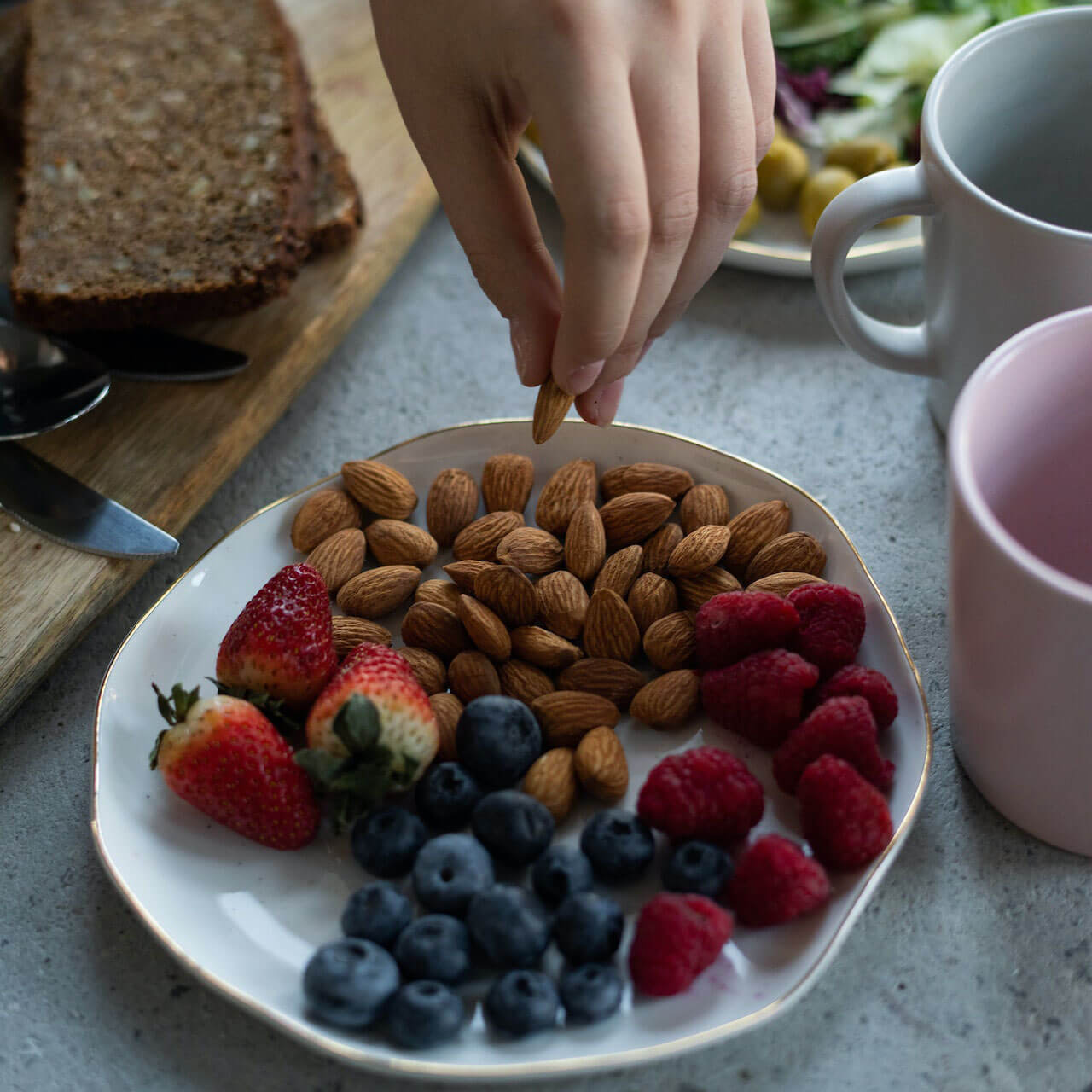
In addition to your main meal the night before a swim meet, there are some nutritious snacks that can benefit your performance that you can eat before and during a swim meet.
Including fruits and nuts in your pre-meet snacking routine can help provide extra nutrients and energy. Opt for easy-to-digest options like bananas, which are a great source of potassium and can help prevent muscle cramps during your swim meet.
Aside from bananas, other fruits like grapes or applesauce are suitable choices for a light, hydrating snack. Nuts, such as almonds or peanuts, and seeds can fuel your body with unsaturated fats, which help support your energy levels during your races.
A handful of almonds or a spoonful of peanut butter can easily be added to your snacking options without causing any digestive discomfort.
Balancing Blood Sugar
Managing your blood sugar levels is essential for swimmers to maintain their energy during a meet. Consuming a balanced combination of macronutrients, including carbohydrates, proteins, and fats, can help keep your blood sugar stable.
A snack like a peanut butter and jelly sandwich includes healthy fats from peanut butter, carbohydrates from bread, and the fruit in the jelly can provide a small amount of natural sugar. Other snacks to consider are:
- Pita chips or bagels for carbohydrates
- Energy bars or energy chews/gels for a mix of carbohydrates and protein
- Electrolyte drinks to help replenish lost minerals during your swim
Foods to Avoid
Fried and Fast Foods
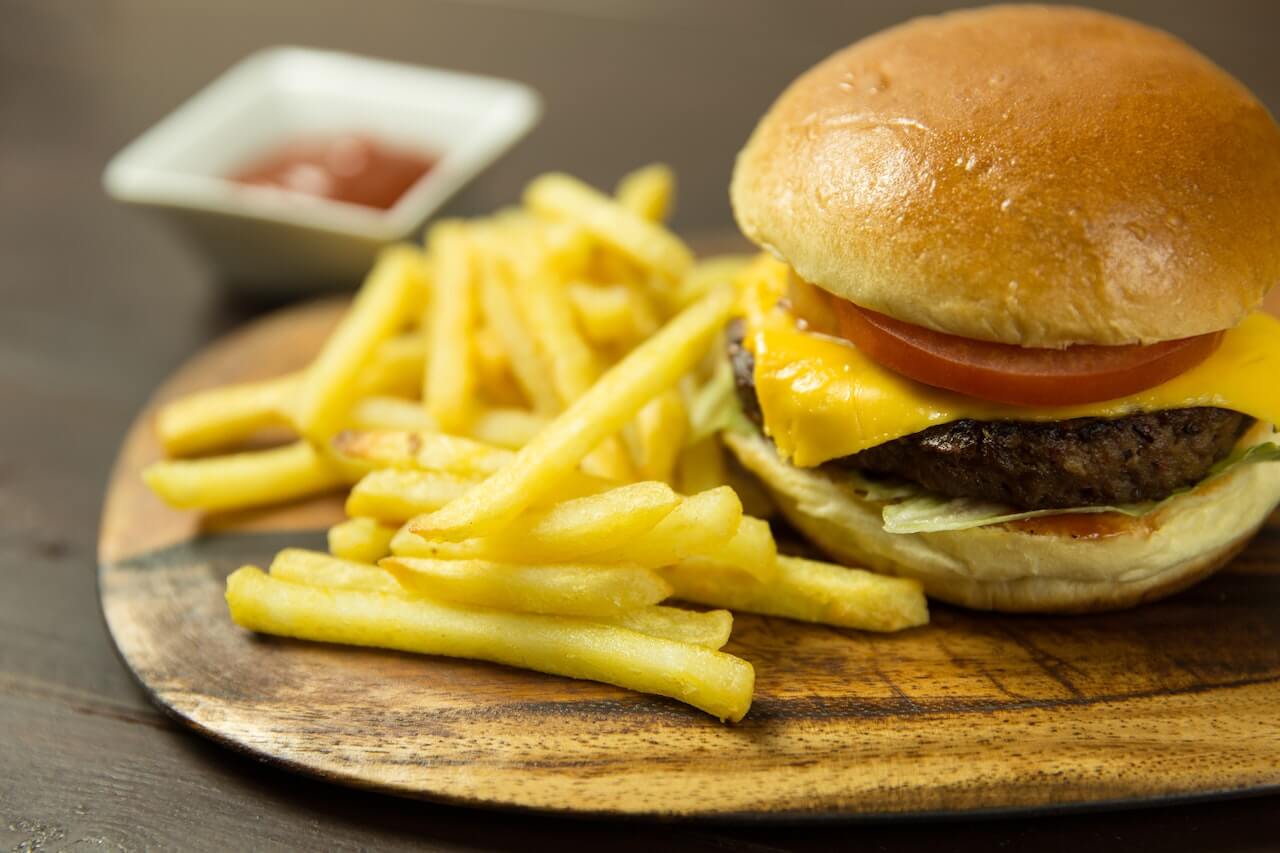
Fried and fast foods can derail your performance at a swim meet, so steer clear of these options the night before the event.
Eating deep-fried foods like French fries, fatty hamburgers, and other fast food items can lead to slower digestion and leave you feeling sluggish in the pool.
Instead, opt for lean sources of protein such as turkey and chicken breast, fish, or shrimp to fuel your body without weighing you down.
Sugary Foods and Beverages
When it comes to sweet stuff, you’ll want to avoid simple sugars, glucose, and sodas before a swim meet. These items can cause rapid fluctuations in your blood sugar levels, leading to inconsistent energy levels and potential crashes during your event.
Even seemingly healthier options like fruit juice and certain cereals may contain a high amount of sugars, so be sure to check the labels carefully.
Here’s a list of sugary foods and beverages to avoid:
- Soda
- Candy
- Fruit juice with added sugar
- Sugary cereals
- Energy drinks with high sugar content
Saturated Fats and Dairy Products
While some fats are beneficial for your body, consuming excessive amounts of saturated fats can hinder your athletic performance.
Foods high in saturated fats, such as processed junk food and many cheese varieties, can be harder for your body to break down and may lead to sluggishness during your swim meet.
Instead, focus on adding healthy fats from sources like avocados, nuts, or seeds to your meals to support your energy levels throughout the event.
If you’re going to include dairy in your pre-swim meet meal plan, opt for low-fat options like Greek yogurt or skim milk to avoid any unwanted side effects.
Morning of the Swim Meet
On the morning of your swim meet, start your day with a nutritious breakfast. Your options will depend on your personal preferences and how your body reacts to certain foods.
If you have an early swim event, give yourself enough time to eat a light breakfast. Some great choices for a light breakfast include:
- Yogurt
- Whole-grain toast
- A bagel with a small amount of cream cheese or peanut butter
If you’re feeling slightly nervous or tend to get butterflies before competing, try a protein shake or a fruit smoothie with added protein and vegetables.
Remember that eating familiar foods will likely be easier on your stomach, so sticking to your regular diet is a good idea.
When you have more time between waking up and your race, you might opt for a more hearty breakfast instead. In this case, consider incorporating:
- Milk or a milk substitute
- Oatmeal with berries or banana
- An energy bar, for an extra boost
Sources:
- https://www.livestrong.com/article/522964-good-foods-to-eat-the-night-before-a-swim-meet/
- https://www.swimoutlet.com/blogs/guides/what-to-eat-before-a-swim-meet
- https://www.yourswimlog.com/swim-meet-nutrition/
- https://blog.arenaswim.com/us/training-technique-us/what-to-eat-before-a-swim-meet/
- https://blog.myswimpro.com/2020/11/03/what-swimmers-should-eat-before-during-and-after-swimming/
